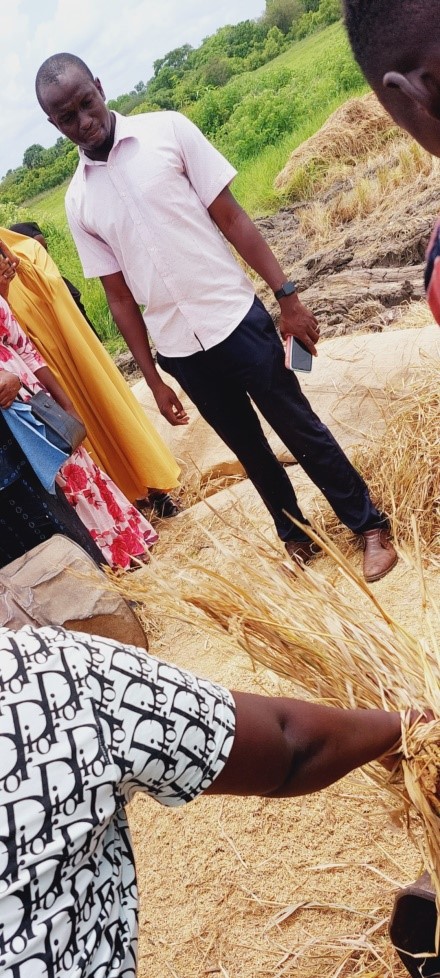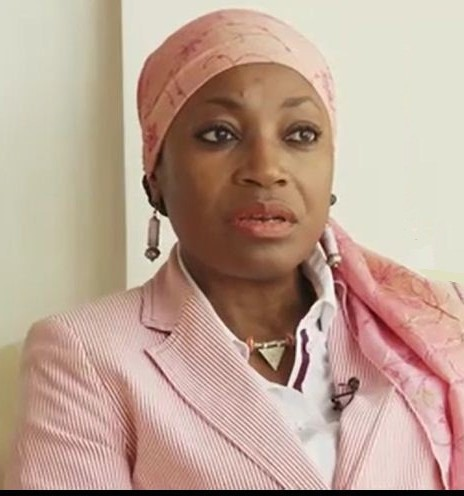By Betty Ceesay
To help ease the burden on the importation and the dependency on rice consumption in the country, Gambians have been urged to consider alternating rice consumption with another foodstuff, such as millet, coos, cassava, beans and find among others.
Speaking during the 2022 report of the PSRA visit to Sapu in the Central River Region, Omar Cole, the Senior Officer of the Agricultural Department of Sapu said the country cannot be rice self-sufficient unless Gambians change their eating habits, that rice is the staple food in the Gambia yet prices keep escalating which is as a result of the country’s high dependence on rice importations.
To solve the burden of rice importation, Mr. Cole urged Gambians to reconsider their daily rice consumption and resort to other available plant foods grown in the country.
According to reports, he said roughly every Gambian living in the country consumes rice at least once daily, leading to an estimate of 117kg average consumption per day, which puts much pressure on the agricultural sector which is already facing numerous challenges.
He added that the consumption rates usually depend on the living standard of the family, as some families consume rice three (3) times a day from breakfast to dinner while some families consume it once or twice a day.
He said rice is a carbohydrate and it needs enough supporting foods to render a balanced diet to the consumer. Which, he said that Gambians lack. He added that these reasonable supplements will not only ease the burden on the farmers but also help Gambians gain a balanced diet which also enables farmers to meet the demands of the people.
He further stated the assumption of Gambians that Jahali and Pacha can feed the entire nation has been cleared, that he urged them to understand that Jahali and Pacha started during President Jawara’s era as a project, although very wide, it still cannot cater for the country’s high rice demands.
He mentioned that it is presently reported that the rice produced in the Gambia cannot feed the population for a complete three months which is a result of numerous problems faced by farmers about land size, climatic conditions, insufficient funding, and lack of technological innovations.
He said that humans are pushing the Earth’s capacity beyond its limits leading to mass destruction, and that pushing the planetary boundaries will only fuel earth’s increasing crises, that for this reason, solving the problems to achieve mass agricultural outputs will be a challenge not only in the country but worldwide.
He said the Gambia is a small country of less than 12,000 square kilometers, but it does not cover the land space required for growing rice, given the fact that farmers still struggle to attain and maintain machinery suitable for easy and quick rice production.
He noted that China as the country’s main aid in the farming industry, food production demands land size and machinery use and that the low level of mechanization is another problem faced by farmers.
Agriculture being an applied science, he said that it needs the support of other sciences to make things easy, but if these areas are not doing well enough to feed the industry, little can be expected from the sector unless the government imports experts to help.
The science fields that agriculture highly depended on are those like physics, Biology, Chemistry, etc, that the Gambia however has little to offer in these areas inferring that the Gambia’s agricultural sector is not getting enough required support in terms of machines and advice to improve in its agricultural production.
He mentioned other challenges faced near the forest where reported attacks from forest animals such as hippopotamus and baboons, that hippocampus could eat a whole field of rice in nothing less than 30 minutes, and even man as a pest, for this reason, the area has been fenced to limit these attacks from occurring considering the closeness of the field to the river.
He concluded that Gambian farmers also depend on tidal to plant the seedlings, but climate change has affected the normal tides necessary to pump water into the farms and all of these are problems holding back mass rice production in the Gambia. He said the Gambia’s agriculture can move forward if it’s privatized.




